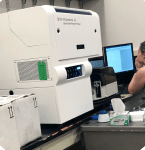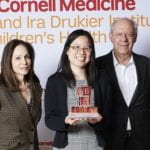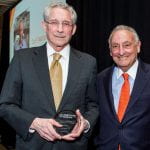 A study, published Jan. 3 in the journal Nature Communications, identifies a key pathway in gastric SCJ cancers that provides a promising target for future study and therapy. The researchers found that the progeny of a type of stem cell (Lgr5+) collect in large numbers and promote cancer in areas where two types of stomach tissues meet.
A study, published Jan. 3 in the journal Nature Communications, identifies a key pathway in gastric SCJ cancers that provides a promising target for future study and therapy. The researchers found that the progeny of a type of stem cell (Lgr5+) collect in large numbers and promote cancer in areas where two types of stomach tissues meet.
























